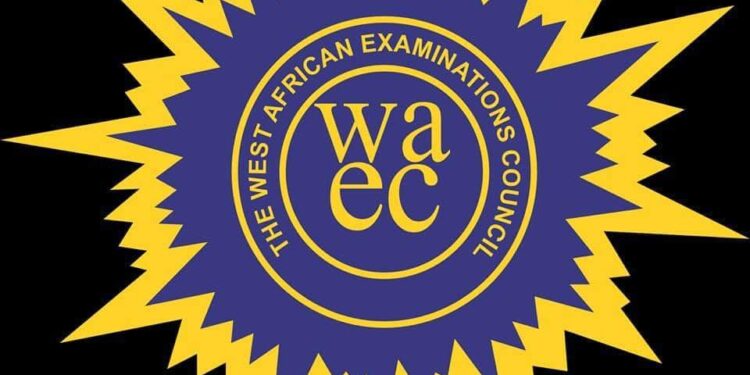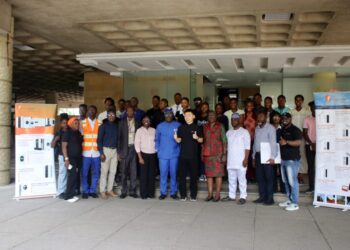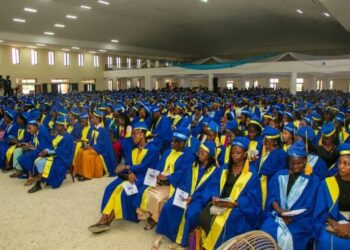The West African Examinations Council (WAEC) has acknowledged errors in the initial release of the 2025 Senior School Certificate Examination (SSCE) results and has issued a corrected version. Following the revision, 1,239,884 candidates – representing 62.9% of the 1,969,313 who sat the examination – now have credit passes in at least five subjects, including English Language and Mathematics.
This marks a significant improvement from the previously announced 754,545 candidates (38.32%) who were said to have met the same benchmark.
Addressing journalists in Lagos on Friday evening, Dr Amos Dangut, Head of the National Office of WAEC, admitted to lapses in the grading of some objective test papers due to errors related to a new paper serialisation system introduced during the examination.
“With deep regret, I address you on behalf of the Registrar, Management, and Staff of WAEC, Nigeria, to announce the reviewed results of the 2025 WASSCE for School Candidates,” he began.
Dr Dangut explained that during an internal post-examination review, discrepancies were discovered in the grading of serialised papers – specifically the objective tests in Mathematics, English Language, Biology, and Economics. He revealed that an incorrect serialisation code was used in printing the English Language Objective Paper 3, leading to the use of inaccurate scoring keys.
Importantly, the schools that administered the exam through the computer-based testing mode were unaffected by this issue.
“This error contributed to the previously observed drop in candidates’ performance,” he said. “We sincerely apologise for the confusion and distress this may have caused candidates and stakeholders. The issue has now been rectified, and the updated results are available on the WAEC portal ([www.waecdirect.org).”](http://www.waecdirect.org%29.”)
Updated Performance Statistics
According to the revised data:
1,239,884 candidates (62.96%) obtained credits and above in five subjects including English and Mathematics.
Of this number, **582,065 (46.95%)were male, while **657,819 (53.05%)** were female.
Despite the revision, this year’s performance still represents a **9.16% decline compared to 2024, when 72.12% achieved the same benchmark.
Dr Dangut urged candidates to recheck their results online and apply for their digital certificates, which will be available within 48 hours of result confirmation. He added that updated result lists would be sent to schools shortly, and only candidates who have fulfilled their financial obligations to the Council would be able to access the portal.
WAEC Appeals for Understanding
WAEC has appealed for public understanding, acknowledging the widespread frustration caused by the initial errors. Dr Dangut said the Council takes full responsibility for the embarrassment and emotional strain faced by candidates, parents, teachers, and other stakeholders.
“This is a difficult moment for WAEC. We acknowledge the ordeal everyone has had to endure and assure you we are taking steps to prevent a recurrence,” he stated.
In response to a question about whether all candidates should check their results again, Dr Dangut replied, “Yes, everything has now been put in order.”
However, he did not disclose whether any disciplinary actions would be taken against those responsible for the initial mix-up.
Public Outcry and Background
The errors in the initial result release sparked widespread outrage, particularly among candidates who had performed excellently in the UTME conducted by the Joint Admissions and Matriculation Board (JAMB) but received unexpectedly poor grades in English Language.
One parent, whose child scored 368 in the UTME and had distinctions in eight WASSCE subjects but failed English, had publicly demanded a review. JAMB itself was earlier embroiled in a similar controversy this year, when technical glitches forced a number of candidates to retake their exams.
WAEC’s revised results come as a response to these growing concerns and represent an effort to restore confidence in the examination process.















































































 EduTimes Africa, a product of Education Times Africa, is a magazine publication that aims to lend its support to close the yawning gap in Africa's educational development.
EduTimes Africa, a product of Education Times Africa, is a magazine publication that aims to lend its support to close the yawning gap in Africa's educational development.